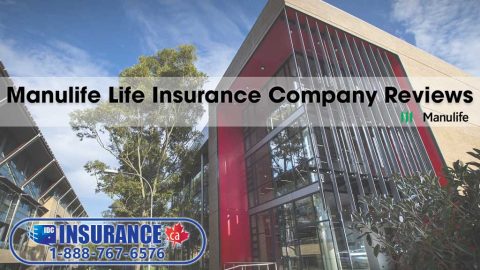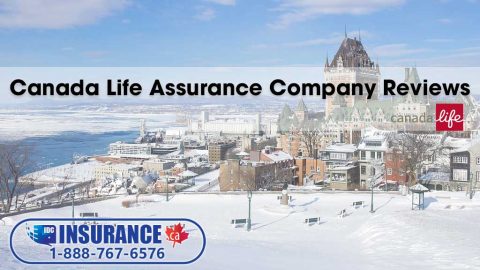Introduction
Losing a loved one is difficult enough without the added stress of locating their life insurance policy. Unfortunately, this is a common occurrence, with millions of dollars in unclaimed life insurance benefits in Canada each year.
When a policy goes unclaimed, it means the deceased’s beneficiaries are not receiving funds that could support them during a challenging transition. As a beneficiary, you may be entitled to claim these undiscovered benefits. This guide will provide tips to help Canadians locate a deceased loved one’s lost life insurance policy.
Preparing to Search for a Lost Life Insurance Policy
Before initiating a formal search, there are steps you should take to look for a misplaced life insurance policy yourself. Thoroughly checking the deceased’s records maximizes the chance you locate the policy without needing to use a policy locator service.
Check Personal Documents and Files
Look through the physical and digital personal documents and files of the deceased. This includes any filing cabinets, safes, folders, or inboxes where they may have retained important records. Review paperwork to find any information related to life insurance policies, such as:
- Life insurance policy documents or statements
- Receipts or confirmation of policy payments
- Contact details for a life insurance agent or company
- Bank statements showing withdrawals for premium payments
- Notes listing beneficiaries or policy details
Also, examine their computer files, emails, cloud storage, and smartphones for digitally stored information.
Contact Relevant Advisors
Speak with the deceased’s known financial, legal, tax, and insurance advisors, as they may have information about any life insurance policies. Ask if they have records of the deceased purchasing or modifying a policy, paying premiums, or naming specific beneficiaries.
Relevant professionals to contact include:
- Accountant
- Insurance agent or broker
- Financial planner
- Lawyer or estate attorney
- Tax preparer
- Executor of estate
Review Financial Records
Examining financial records can provide hints about possible life insurance policies. Look for:
- Bank withdrawals made to the same insurance company, likely for premium payments.
- Insurance payout deposits that may have been accessing the cash value of whole life insurance policies.
Read more: Whole Life Insurance in Canada
- Loans or liens against a life insurance in Canada.
- Taxes paid on withdrawals or policy earnings.
Confirming a Policy Exists
Before using a formal search process, you need evidence that makes it reasonable to believe the deceased had a life insurance policy in place. This prevents spending time and effort searching when there is little indication a policy exists.
Possible proof includes:
- Finding previous policy documents with expired terms.
- Noting regular payments to an insurance company.
- Learning that the deceased spoke of having a policy.
- Recording policy details to acquire loans or other benefits.
Understanding Timeframe Requirements
You can only search for a deceased person’s life insurance policy during a limited initial period following their death. This window is:
- More than three months since the date of death – Allows time for initial searches by family first.
- Less than two years since the date of death – Ensures the loss is still relatively recent, improving record availability.
These time restrictions avoid searches for extremely old policies where records may be unavailable.
Using OLHI to Search for a Lost Life Insurance Policy

The OmbudService for Life and Health Insurance (OLHI) offers a free national database search for unclaimed life insurance policies in Canada. Here is an overview of using their locator process.
What is OLHI?
- OLHI is an independent dispute resolution service for the Canadian life and health insurance industry.
- They help policyholders resolve issues with their coverage providers.
- OLHI also assists beneficiaries in locating unclaimed/ lost life insurance policy.
- Their members cover most of life and health insurance companies operating in Canada.
Who Can Submit a Search Request?
To use OLHI’s policy locator service, you must be:
- A designated beneficiary of the policy you are searching for.
- Next of kin, such as the deceased’s spouse or child.
- The appointed executor or trustee of the deceased’s estate.
You will need to provide identifying documents to confirm you qualify.
How OLHI’s Search Process Works
After submitting a request, here is how OLHI’s search process unfolds:
- OLHI reviews your request to ensure it meets eligibility criteria. This includes confirming the death occurred within the valid timeframe and that you have provided evidence a policy exists.
- If approved, OLHI sends the request details to all its member life and health insurance companies.
- Each company checks its records for policies that match the deceased’s information.
- If there is a match, the insurer notifies OLHI. OLHI then informs the search requester.
- The matching insurer contacts you directly to confirm you are a listed beneficiary and begin the claims process.
This search is free for approved applicants. If OLHI locates an unclaimed/ lost life insurance policy, you can then collect the benefits to which you’re entitled.
When OLHI Searches Are Unsuccessful
In some cases, OLHI’s database search will not locate a deceased’s life insurance policy, even when one exists. Here are the reasons this can occur:
Non-Member Insurance Companies
If the policy is with a life insurance company that is not an OLHI member, their search will not find it. In this case, you will need to contact likely insurers directly.
Issues With Group Policies
Group life insurance policies through employers or associations can sometimes be difficult to uncover with OLHI’s search. Follow up with the deceased’s current and former employers or affiliated groups to inquire about group coverage.
While OLHI strives to locate all unclaimed policies, there are scenarios where their process falls short. Using their service as the first step is recommended, but be prepared to do additional searches if they are unable to find an existing policy.
Verifying You Are Listed as the Beneficiary
Once you have identified the life insurance company that issued the policy, you need to confirm you are recorded as a current beneficiary. This ensures you will be eligible to make a claim.
Contact the Insurance Company
Reach out to the insurer’s customer service department to inquire about the beneficiary status of the deceased’s policy. Provide them with identifying details such as:
- Your full legal name.
- Contact information, including phone number and address.
- Your date of birth and social insurance number.
- Your relation to the deceased policyholder.
Insurers are required to protect personal information. Be prepared to furnish documentation that verifies your identity and your relationship to the deceased.
Receive Confirmation
The insurer will review policy records and contact you if you are indeed noted as a current beneficiary. They can then explain the requirements and next steps for filing your policy claim.
Unfortunately, if the insurer determines you are not a designated beneficiary on the deceased’s policy, you will be ineligible to receive a payout of the death benefits.
Claiming Death Benefits as a Confirmed Policy Beneficiary

Once the insurer confirms your status as a valid beneficiary, you can move forward with submitting a formal claim to collect life insurance policy death benefits.
Required Claim Documents
To process a claim, insurers typically require:
- An official death certificate documenting the insured’s passing.
- Identification documents to confirm your identity. Driver’s license, passport, social insurance card or birth certificate.
- Completed claim forms provided by the insurance company.
- A copy of the original policy, if available. Not strictly necessary.
- Additional paperwork for special claim situations like accidental death.
Submit all documents at the same time to streamline claim processing. Make copies before sending originals by mail.
Receiving Your Policy Benefits
Once the insurer verifies all documentation and approves the claim, the death benefit funds will be released. Payout timeframes vary by company but are often completed in 1-2 weeks after receipt of a valid claim.
You will typically receive benefits in the form of a check, direct deposit, or other lump-sum payment method. Follow the insurer’s guidance on selecting your preferred disbursement approach.
Reasons Life Insurance Benefits Go Unclaimed
Despite the best efforts of insurers and claimants, life insurance payouts too often go uncollected each year. Some key reasons this happens include:
Inaccurate Beneficiary Records
When beneficiary contact information on a policy is outdated or incorrect, it becomes nearly impossible for insurers to locate rightful beneficiaries. Maintaining updated details with insurers prevents this issue.
Lack of Reporting
Insurers rely on claimants reporting a death and submitting the required paperwork to trigger a payout. When this notification does not occur in a timely manner, benefits languish.
Delayed Review of Death Records
Insurers should cross-check current policyholders against provincial death records to identify deceased insureds. But these reviews can lag, delaying the claims process.
Time Limits for Claims
If beneficiaries cannot be located after an extended period, insurers are obligated to transfer unclaimed benefits to the government. This timeframe varies by province but is often 2-5 years following the death.
What Happens to Unclaimed Benefits?
When unclaimed life insurance money is surrendered by the insurer, it does not disappear forever. Here is the process:
Transfer to Provincial Governments
Each Canadian province has an unclaimed property office that takes custody of unclaimed life insurance proceeds. Timeframes before insurers must transfer funds vary based on provincial laws.
Claiming Benefits From the Government
If the insurer transfers unclaimed benefits related to your deceased loved one to the province, you can recover the money by contacting your provincial unclaimed property office and providing documentation to confirm your rightful claim.
While locating unclaimed property held by the government can be challenging, recovery is possible in most circumstances if original beneficiaries come forward.
Conclusion
Losing someone close to you is painful enough without the added burden of locating a missing life insurance policy. However, there are steps you can take to track down unclaimed benefits to ease the financial challenges of your loss.
Thoroughly searching the deceased’s records yourself provides the greatest chance of quickly finding a misplaced policy. If this initial investigation is unsuccessful, use a free service like OLHI’s policy locator to expand your search across hundreds of Canadian insurers.
Confirm you are designated as a current beneficiary before expecting an insurance payout. If benefits are ultimately transferred to a provincial government after going unclaimed with an insurer, persistence can still help you collect the benefits you are rightfully owed.
With a methodical approach and perseverance, you can locate a deceased loved one’s lost life insurance policy to ease the grief of your loss with financial stability.
For ongoing news, insights, and resources, visit Insurance Direct Canada. As Canada’s leading life insurance news source, Insurance Direct Canada provides many helpful articles and guides to help you make informed decisions about protecting their financial futures with insurance coverage.
Readers can find up-to-date information on topics like Term life insurance, Permanent Life Insurance, Life Insurance with Pre-Existing Conditions, Life insurance companies in Canada, and more. Insurance Direct Canada aims to be the top destination for Canadians seeking knowledge to optimize their life insurance plans.










